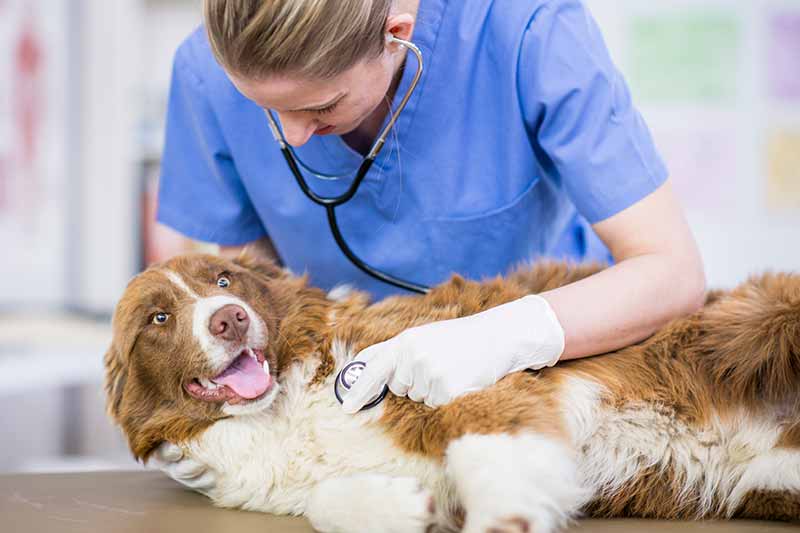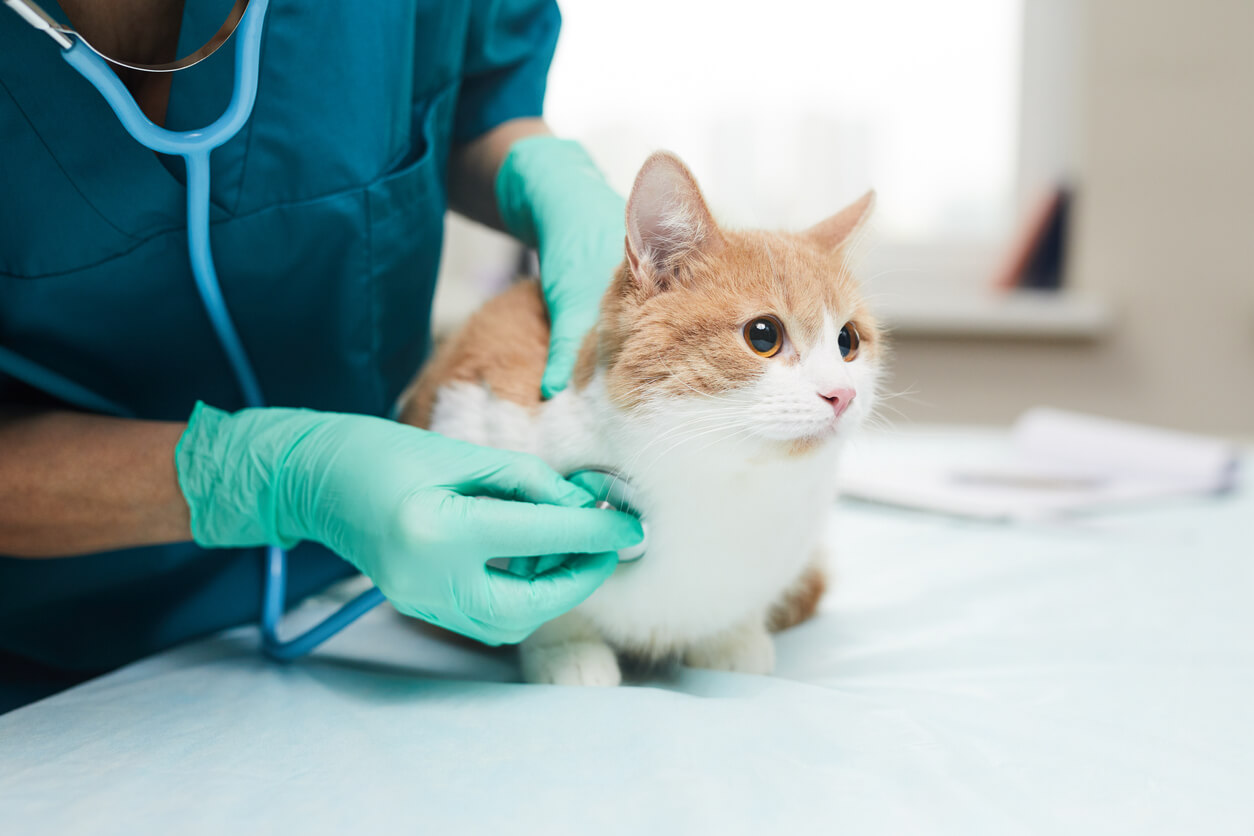What to Anticipate Throughout Your Browse Through to Veterinarian Greensburg
What to Anticipate Throughout Your Browse Through to Veterinarian Greensburg
Blog Article
Professional Tips for Pet Nourishment From a Veterinarian
Understanding the dietary needs of pet dogs is vital for their total health and longevity. Vets advise a balanced diet that satisfies individual elements such as breed, activity, and age level. With the multitude of family pet food alternatives available, pet proprietors commonly locate themselves browsing a landscape rife with misinformation and misconceptions. As we discover essential pointers from veterinary specialists, it comes to be apparent that appropriate nutrition is not simply about what is fed but includes a much deeper understanding of each pet dog's unique requirements. What vital insights could transform your method to family pet nutrition?
Understanding Nutritional Requirements
Understanding the nutritional requirements of pet dogs is fundamental to guaranteeing their total wellness and wellness. Much like human beings, family pets call for a balanced diet regimen that provides essential nutrients, including proteins, fats, minerals, carbohydrates, and vitamins. These nutrients play critical functions in different bodily features, such as energy production, immune reaction, and cells repair work.
They are composed of amino acids, some of which are crucial and should be gotten from food. Carbs serve as a main power resource and can sustain digestive system wellness when they include fiber.
Nutrients are essential for metabolic procedures and preserving overall health and wellness. Each pet dog may have special requirements based upon variables such as age, type, activity level, and wellness status. It is crucial to speak with a vet to figure out the certain dietary requirements tailored to your pet's specific requirements, ensuring they receive optimum nourishment throughout their life stages. Proper understanding and interest to these nutritional components can dramatically contribute to a family pet's durability and quality of life.

Selecting the Right Food
It is essential to take into consideration factors such as age, type, health and wellness, and dimension condition when picking an animal food. Elderly family pets might benefit from foods developed to deal with age-related issues, such as joint health and wellness or weight management.
When evaluating family pet food alternatives, search for items that meet the Association of American Feed Control Officials (AAFCO) standards, which make sure that the food provides well balanced and complete nutrition. Components need to be top quality, with actual meat as the key source of protein. Avoid foods with too much fillers, artificial ingredients, or by-products, as these can interfere with the general dietary value.
Consulting with a veterinarian can provide customized recommendations based upon your animal's details requirements. Additionally, transitioning between foods must be done slowly to avoid gastrointestinal distress. By taking these steps, animal owners can make sure that they are providing their fuzzy friends with the finest possible nourishment for a satisfied and healthy and balanced life.
Usual Misconceptions Regarding Animal Food
Disproving misconceptions bordering pet food is critical for making sure optimal nourishment for our furry companions. One prevalent misconception is that all grain-free diet plans are exceptional for animals.

In addition, several pet owners believe that "premium" or "natural" tags guarantee better. However, these terms are typically unregulated and do not necessarily suggest remarkable dietary value. It is essential to inspect ingredient lists and nutritional accounts rather.
Unique Considerations for Different Breeds
When it pertains to pet nutrition, unique factors to consider have to be considered for various breeds, as each type can have unique nutritional requirements and level of sensitivities. Huge types such as Great Danes and Saint Bernards are prone to musculoskeletal problems and might benefit from diets created to sustain joint health and wellness, frequently featuring active ingredients like glucosamine and omega fatty acids. On the other hand, little types like Chihuahuas might call for greater calorie thickness to fulfill their power degrees, necessitating formulations that are rich in nutrients however lower wholesale.
In addition, specific types might be predisposed to particular wellness problems, such as food allergies or level of sensitivities. Types like Labrador Retrievers might fight with weight problems, calling for mindful portion control and a balanced diet regimen to preserve a healthy weight. On the various other hand, breeds such as Dachshunds may be more at risk to spinal issues, triggering a requirement for diets that promote spine health and wellness and weight management.
Inevitably, comprehending these useful content breed-specific dietary demands is crucial for pet proprietors. Consulting with a veterinarian can help in choosing the most suitable diet regimen tailored to a private family pet's breed, health and wellness, and age status, guaranteeing ideal nourishment and health.
Relevance of Routine Vet Exams
Comprehending the special nutritional demands of various breeds is just one facet of responsible animal ownership; regular veterinary examinations play a vital function in preserving total health. These check-ups are essential for very early discovery of wellness problems, making sure that any prospective issues are dealt with before they become severe. Routine sees allow vets to monitor your animal's weight, dental wellness, and crucial indicators, which are essential signs of overall health.
Furthermore, routine examinations allow vets to supply tailored dietary suggestions based upon your pet's private wellness condition - Vet Greensburg. As pets age, their dietary requirements might change, and modifications may be necessary to avoid excessive weight or nutrient deficiencies. Precautionary treatment, including vaccinations and parasite control, is likewise a basic part of these see check outs, securing your animal from various conditions
Along with checkups, these visits offer a superb chance for pet dog owners to talk about behavior changes or issues concerning their family pet's consuming behaviors. By focusing on normal vet examinations, pet proprietors can guarantee a longer, healthier life for their furry buddies, inevitably boosting their high quality of life.
Final Thought
In verdict, guaranteeing optimal pet dog nutrition requires a thorough understanding of specific nutritional demands, proper food selection, and awareness of common misconceptions. Special considerations for numerous breeds should be accounted for, and regular veterinary exams play an important role in keeping track of health and dietary changes. Adhering to AAFCO requirements have a peek here and seeking advice from veterinarians prior to making nutritional changes will enhance the wellness of pets, inevitably adding to their durability and lifestyle.
With the multitude of pet dog food options readily available, pet proprietors usually find themselves browsing a landscape rife with false information and misconceptions. Each pet might have unique demands based on variables such as age, type, activity degree, and health condition. It is important to consider elements such as age, size, health and wellness, and breed condition when selecting a pet dog food. Elderly animals may benefit from foods made to resolve age-related concerns, such as joint health and wellness or weight monitoring.
Comprehending the distinct nutritional demands of various types is just one element of accountable family pet possession; routine vet exams play an essential role in preserving total wellness.
Report this page